More law firms take on cross-selling
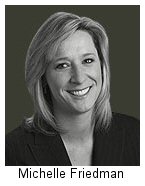 From the Wisconsin Law Journal:
From the Wisconsin Law Journal:
But while one lawyer may be able to boost his or her own bottom line, a number of firms are adopting a team approach to help expand business, especially in a down economy.
The concept of cross-selling, or having attorneys from different practice areas connect each other with clients, is an emerging trend for mid-size firms.
Milwaukee-based Davis & Kuelthau SC has gradually incorporated the concept as a way to coordinate business between its five Wisconsin locations.
Marketing director Michelle M. Friedman said that it takes “toddler steps” to implement a successful cross-selling plan.
Business development training sessions for attorneys and modifications in firm compensation models to reward collaboration are two avenues that Friedman has seen work.
For example, said Friedman, instead of an attorney being compensated solely on the business he or she individually brings in, subjective factors such as partner collaboration and non-billable efforts to generate business can be used to “incentivize” cross-selling.
What’s key to success, she said, is letting attorneys “who are really good business developers lead the way to help collaborate among practice groups. [Then] there is a trickle-down effect to other attorneys.”
Reluctant veterans?
But getting a veteran attorney with a strong book of business to subscribe to the idea of cross-selling can be easier said than done, noted marketing consultant Larry Bodine.
While the recession may provide additional incentive to work together to build business for a firm, some lawyers are reluctant to risk losing clients and billable hours.
“The key thing law firms have to remember is a client is not a partner’s personal book of business,” Bodine said. “Clients are an asset for the firm to exploit, so there is no excuse for a partner to hoard clients. It’s just hurting the firm.”
How do you identify clients who might be good candidates for cross-selling? Bodine said the traditional point of entry is through the corporate practice, because attorneys who do transactional work or corporate filings are often in the best position to know what else is going on at a company.
“Then you ask those corporate lawyers, ‘what else does this client need?’ Red hot areas like bankruptcy or government regulation might lend themselves to additional opportunities.”
Bodine said that in his experience, the more partners that work with a client the better the chance the client will have a long-term relationship with the firm.
 Michael Best & Friedrich LLP has had success cross-selling through their corporate practice, said marketing manager Jennifer R. Rupkey. Opportunities for intellectual property and real estate work have emerged as a result of relationships with corporate clients.
Michael Best & Friedrich LLP has had success cross-selling through their corporate practice, said marketing manager Jennifer R. Rupkey. Opportunities for intellectual property and real estate work have emerged as a result of relationships with corporate clients.“We look at it from the client’s perspective in terms of what types of services might they be looking for, as opposed to the mindset of, let’s go sell this client,” she said.
In house counsel avoid hiring firms if it’s clear the lawyers don’t like each other or haven’t worked together. You don’t want attorneys from the firm introducing themselves to their own co-workers when they enter the room for the pitch.
It may seem like basic advice, but larger firms shouldn’t forget the attorneys in their other offices, said Friedman. She’s heard of instances where work was referred to other firms because the lawyer didn’t know someone internal was available.
“If you don’t know enough about the partners at another office, set up a presentation to say, ‘here’s what we do, how can we help,’” Friedman said.

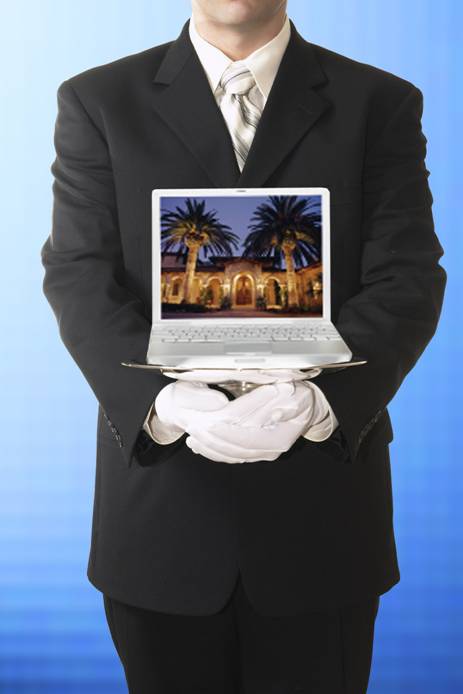 When I attended the Association of Corporate Counsel meeting last month, the corporate clients were calling for law firms to offer "concierge services."
When I attended the Association of Corporate Counsel meeting last month, the corporate clients were calling for law firms to offer "concierge services." These are sites and software tools that can automatically track changes on chosen web pages and send alerts when a website has been updated with new information. This is especially helpful for monitoring blog sites and other irregularly updated sources.
These are sites and software tools that can automatically track changes on chosen web pages and send alerts when a website has been updated with new information. This is especially helpful for monitoring blog sites and other irregularly updated sources.
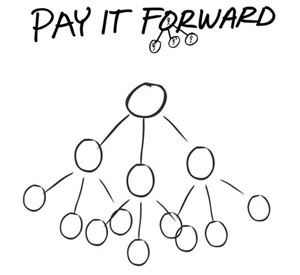 RainMaker Software announced that it has has awarded more than $430,000 in funds to 33 different firms in its $1 million Economic Assistance Program for law firms. The program was originally announced to law firms back in March and continues to increase applicants as the December 31st deadline approaches.
RainMaker Software announced that it has has awarded more than $430,000 in funds to 33 different firms in its $1 million Economic Assistance Program for law firms. The program was originally announced to law firms back in March and continues to increase applicants as the December 31st deadline approaches. 
 A great marketing tip I picked up from a partner at a West Virginia law firm is to bring your client to the final hearing of his case.
A great marketing tip I picked up from a partner at a West Virginia law firm is to bring your client to the final hearing of his case. Networking works best if it is done with "marketing aforethought." Here’s your game plan for an effective networking event.
Networking works best if it is done with "marketing aforethought." Here’s your game plan for an effective networking event.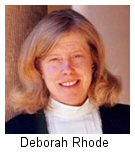 Article from:
Article from:  "This sensitized the partners to some of the critical business issues going forward, such as mergers, bringing on laterals [lawyers from other firms] and opening new offices," said Michael Levinson, a trial lawyer and partner at Seyfarth Shaw.
"This sensitized the partners to some of the critical business issues going forward, such as mergers, bringing on laterals [lawyers from other firms] and opening new offices," said Michael Levinson, a trial lawyer and partner at Seyfarth Shaw.



 Lead Article -
Lead Article - 

 Backyard Twitter: Go Local, not Global, to Build Relationships
Backyard Twitter: Go Local, not Global, to Build Relationships



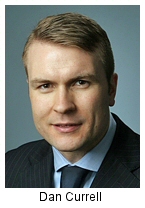 Far and away the biggest development of the last 12 months is the prevalence of alternative fees. Dan Currell, Senior Member of the General Counsel Roundtable, told me that law firms that offer alternate fees are "eating the other law firms' lunch." Roughly half of all clients are using alternative fees, according to the new Fulbright & Jaworski survey of in-house lawyers (see the chart) -- and see the article
Far and away the biggest development of the last 12 months is the prevalence of alternative fees. Dan Currell, Senior Member of the General Counsel Roundtable, told me that law firms that offer alternate fees are "eating the other law firms' lunch." Roughly half of all clients are using alternative fees, according to the new Fulbright & Jaworski survey of in-house lawyers (see the chart) -- and see the article 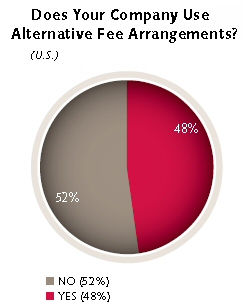 The most popular alternative fee arrangements are, in order:
The most popular alternative fee arrangements are, in order:



 NUMBER ONE: PROSKAUER ROSE - Chief Marketing Officer, Joe Calve
NUMBER ONE: PROSKAUER ROSE - Chief Marketing Officer, Joe Calve.jpg)
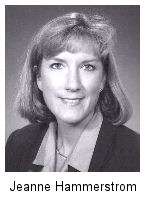 NUMBER THREE: BENESCH, FRIEDLANDER, COPLAN & ARONOFF LLP -- Chief Marketing Officer Jeanne M. Hammerstrom
NUMBER THREE: BENESCH, FRIEDLANDER, COPLAN & ARONOFF LLP -- Chief Marketing Officer Jeanne M. Hammerstrom


